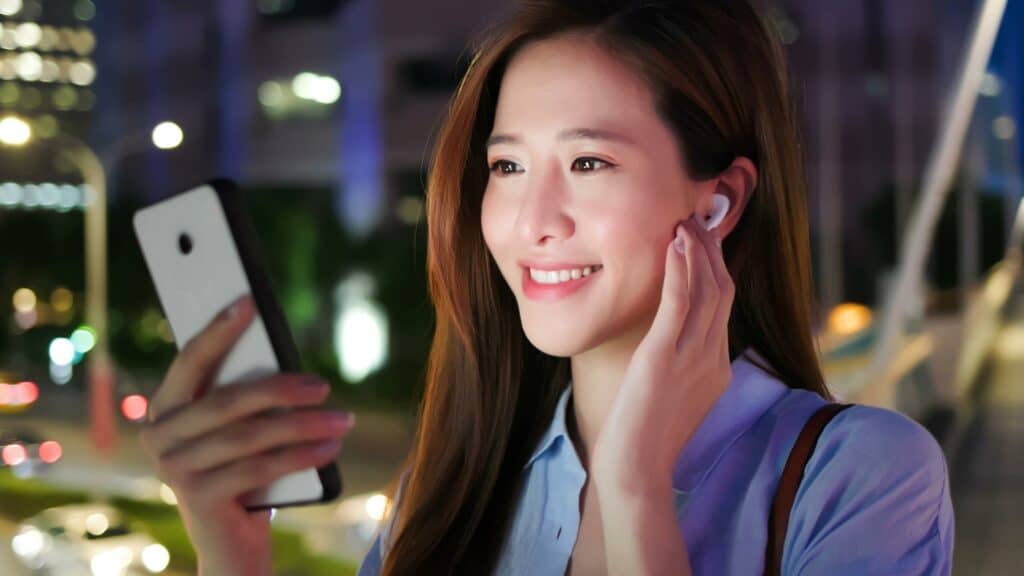Hearing risks come in many forms, and some of them might even be lurking in your backpack. When you first think of a risk to your hearing, you likely imagine a loud factory, a mechanic working on an airfield, or a musician playing a loud concert. Although these professions do come with risks to your hearing, they are not alone. Recreational noise is a growing concern, particularly as audio technology advances. When we play headphones or earbuds at too loud a level, we can do permanent damage to hearing, particularly when we use them for an extended duration. Let’s take a closer look at how earbuds can be a risk to our hearing health, as well as some best practices to put in place to make sure your hearing remains safe while you use these devices.
Noise-Induced Hearing Loss
Very loud environments can pose a risk to your hearing, indeed, but relatively quieter sound can also pose a risk when you are exposed to it for too long. As a rule of thumb, the risk of hearing begins around 85 decibels. At this volume, you can listen to a sound for about eight hours without a risk to your hearing. However, with each additional three decibels of volume, that time is cut in half. For example, you can listen to 88 decibels of sound for four hours without a risk of damage, 91 decibels of sound for two hours, and so on. As you can see, louder sounds can only be endured for a matter of minutes before they pose a risk to your hearing. When it comes to earbuds and headphones, quieter sounds can pose quite a risk particularly when they come from streaming media, music, audiobooks, or the sound for television and movies. If you love to binge-watch your favorite television shows with these hearing devices in place, it is particularly important to limit the volume. Even when that volume feels comfortable, the cumulative effect can be damaging when enough time goes by.
How to Avoid Hearing Damage
If you know that you are prone to wear your earbuds or headphones for a long time, there are a few best practices you can put in place to make sure you don’t damage your hearing. First, you can be sure to limit the time of use as much as possible. Taking regular breaks from your devices can give you some much-needed quiet time, and it also might help you realize just how loud your earbuds had become. In addition, you can set a maximum volume for yourself. Whether you do so by remembering that 75% of the maximum volume on a smartphone is a good rule of thumb or by installing an app that will automatically monitor your volume for you, it is essential to keep this level low, particularly when you are using your devices for a long time. If you use your headphones or earbuds on a mode of transportation, make sure you aren’t competing with that background sound. We have a natural impulse to turn up these devices when the competing sound of a train, airplane, bus, or car brings background noise, but that sound is likely adding to your earbuds, creating an even greater noise level than when they are used alone. If you wear your earbuds on a train, for example, they might seem very loud if you put them in at home. Noticing this difference is a sure sign that you are playing them too loudly. Finally, if you have young people in your life, it is important to talk with them about the way to properly use earbuds or headphones. Many experts recommend not giving these devices to children. If you do so, you might want to install an app with parental controls to monitor the volume level. With these principles in mind, you can find a way to use these devices without a risk to your future hearing ability. Once hearing is lost due to noise exposure, it does not come back on its own, so be sure to take recreational noise seriously. If you have already noticed a difference in your hearing due to noise exposure or wearing earbuds, don’t hesitate to schedule a hearing test to find out what treatment can help you.





